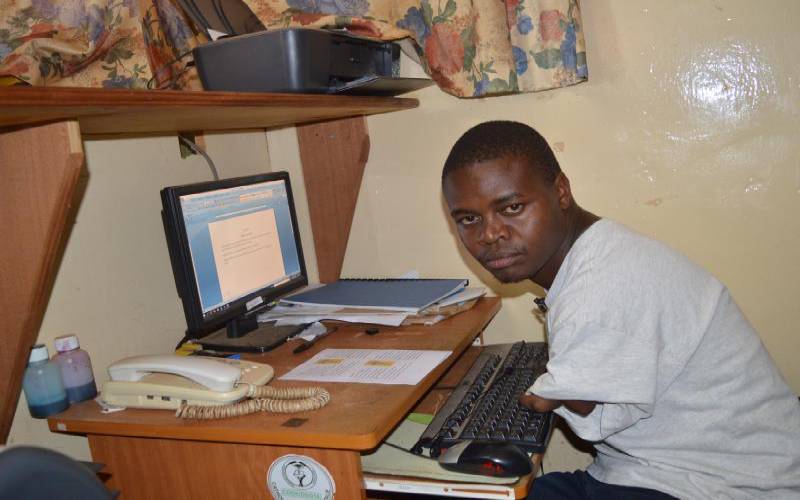×
The Standard e-Paper
Home To Bold Columnists

Samuel Juma using a small limb protruding through the shoulders to type in his office at the Catholic Diocese of Kitale, Trans Nzioa County. [PHOTO: NANJINIA WAMUSWA/STANDARD]
The first time Samuel Juma put pen to paper was after he joined Standard Eight in 2002.